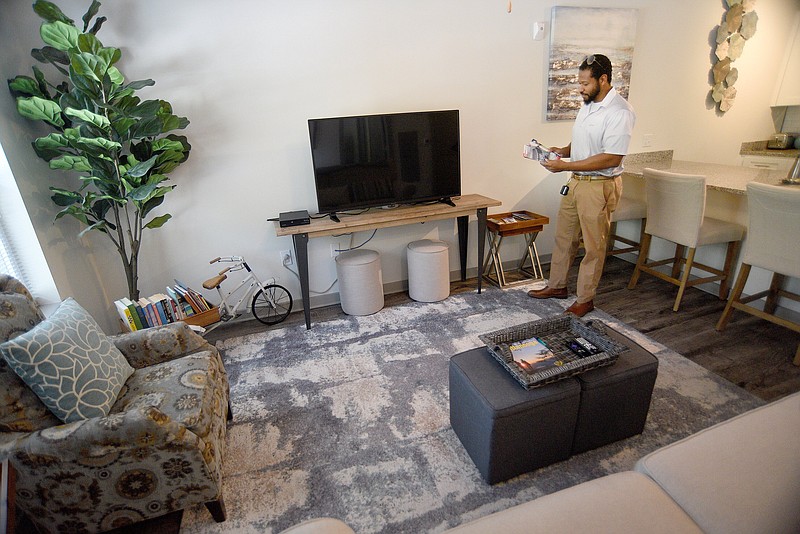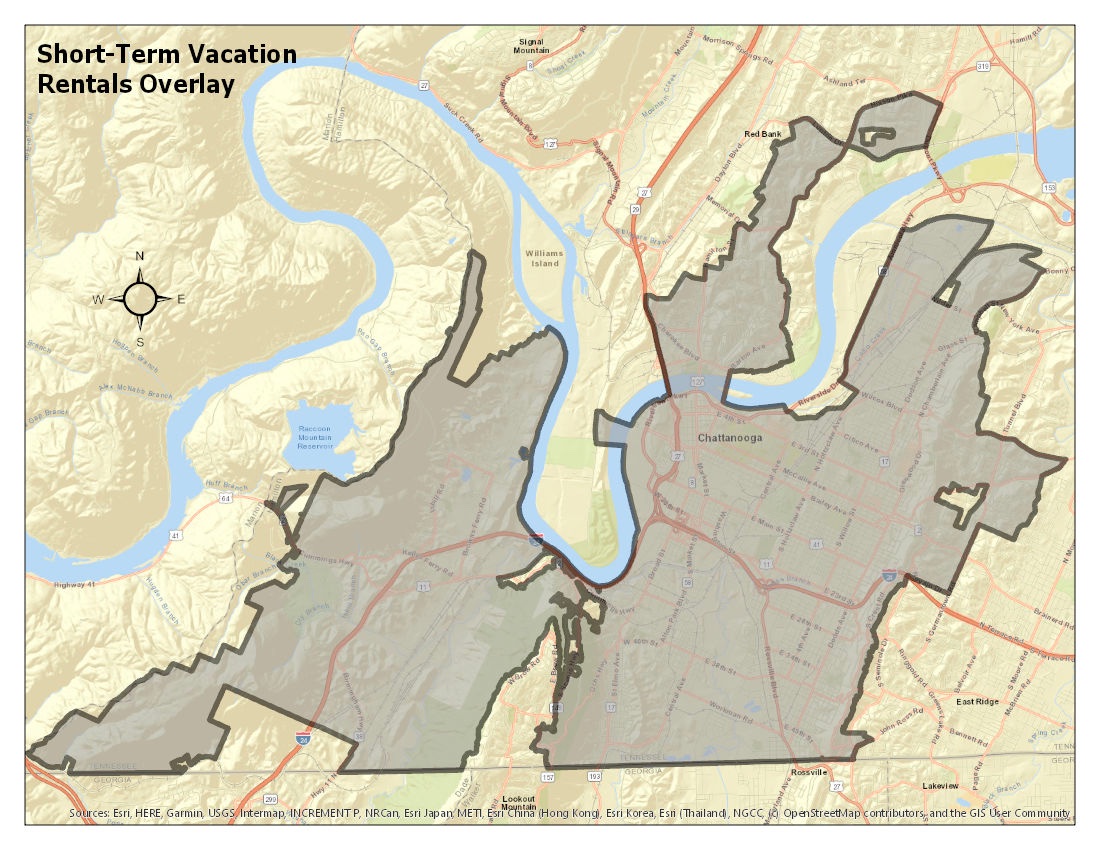Revised rules will restrict many new short-term vacation rentals in Chattanooga to commercial areas that allow hotels, and a group of operators said they intend to sue the city, with a member claiming the update violates their rights as property owners.
"I think that it dramatically affects and burdens private property rights because they're taking the entire use of somebody's property away, which is a constitutional right," Brad Wardlaw, who owns a short-term vacation rental in Chattanooga, said in a phone call.
He was referring to an ordinance sponsored by Chattanooga Mayor Tim Kelly's administration that the City Council unanimously approved Tuesday. It was the panel's latest crack at adjusting the city's rules since enforcing a temporary pause on certain new permits in April 2022, which is set to end in July.
However, supporters of the changes argue they will help prevent vacation rentals from overrunning local communities and will allow the city to better clamp down on the numerous illegal units operating in Chattanooga.
"You're never gonna get everything you want, but I think it's very fair," Chattanooga real estate agent Susan Gilmore said in a phone call. "I think it's very appropriate. I think it's very needed."
Previously permitted in a designated district known as the overlay, absentee vacation rentals — those where the owner doesn't live onsite — will now be allowed citywide but are limited to the 11 commercial zones that also allow hotels. The city will grandfather in all existing permits.
The city will allow homestays — rentals where the owner does live onsite — to operate in those same areas that permit hotels, but owners can also establish homestays in residential areas within the pre-existing overlay.
Kelly said in a statement Tuesday evening the city welcomes outside guests, but officials must also find ways to crack down on illegal vacation rentals, which can change the character of neighborhoods and harm quality of life by inflating housing prices.
"We've heard for years that the existing system didn't work for business owners or for our neighborhoods, and I'm grateful to the City Council for the long hours they've put into enacting these common-sense ground rules that promote both healthy neighborhoods and the wise use of our commercial corridors," Kelly said.
Thomas Purdy, who owns 15 residences in Chattanooga he rents out to longer-term tenants, said by phone he agrees vacation rentals can alter the disposition of neighborhoods.
"They spend one night there," Purdy said. "You don't know who they are. You don't know where they come from. You really don't know what group they're part of. They're in last night. They're out this morning. And as far as I'm concerned, if the whole neighborhood looked like that, you'd have a disaster on your hands."
Gilmore, who is Purdy's sister-in-law, believes vacation rentals are a good way for people to produce additional income, but they shouldn't be allowed to crop up in every community unchecked, adding that they've greatly affected the fabric of her downtown neighborhood. Many of the homes in and around her block are vacation rentals, she said.
"When I first moved in 10 years ago, there was really a sense of community, and you knew your neighbors," she said in a phone call.
"We still have some of that, but it it is not like it used to be. I think my biggest frustration is the code that did exist had absolutely no teeth or enforcement. So people who violated code did so so egregiously with no repercussions at all — and continue to do so."
As part of the changes approved Tuesday, no more than a quarter of the units in a multifamily dwelling can become short-term vacation rentals, and the city is also raising the application and annual renewal fees to $250 for homestay rentals and $500 for absentees. They were both originally $150.
Additionally, officials are putting in place new measures to clamp down on illegal, unpermitted vacation rentals, which have numbered in the hundreds citywide. That includes hiring an administrative hearing officer, who will be in charge of reviewing violations of the city's rules. The position will allow the city to increase its maximum penalties from $50 to $500 per day.
The City Council has received one applicant for that job, longtime attorney Mike Mallen, and will vote on his appointment during the panel's meeting June 6.
"I think the prospect of having homestay in the overlay is reasonable and fair," Mallen said in an interview Tuesday afternoon. "I think having commercial activity in commercially zoned areas is logical. I think it's fundamentally fair, and I respect council's discretion. Different municipalities have looked at this differently, but this is a new oncoming business model. I'm glad our council is being proactive."
As of June, Chattanooga had about 440 short-term vacation rentals — 320 absentee and 120 homestay. An analysis completed by Chris Acuff, a professor at the University of Tennessee at Chattanooga, estimated an additional 496 were unpermitted. Together, permitted and unpermitted rentals encompass 1.2% of all residential properties in the city.
Wardlaw is part of a coalition of property owners that has been raising money to challenge the city's new rules in court. A GoFundMe page linked to the group had raised $26,180 from 40 donations as of Tuesday. The group's email list of about 130 people includes several members from outside the area, Wardlaw stated, but the majority — about 90% or more, he estimated — are owners and operators based in the Chattanooga area.
Wardlaw said he objects to the city limiting absentee rentals to commercial areas.
"They're only allowing the people with super deep pockets that they believe are the issue ... to do it," Wardlaw said. "The average Chattanoogan that's buying these things to supplement their income and to help build some generational wealth for their family can't afford to buy in a hotel zone."
Contact David Floyd at dfloyd@timesfreepress.com or 423-757-6249.

